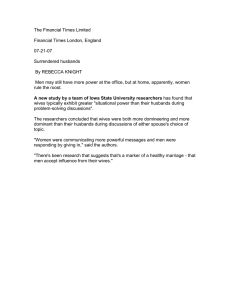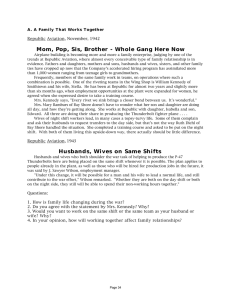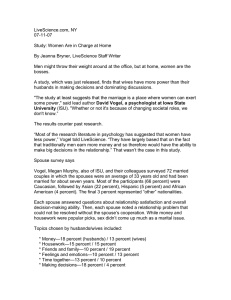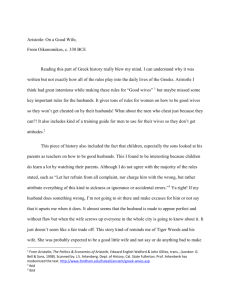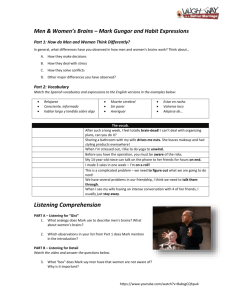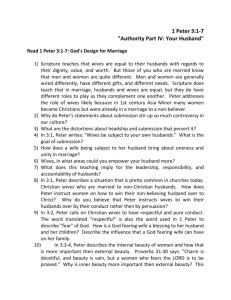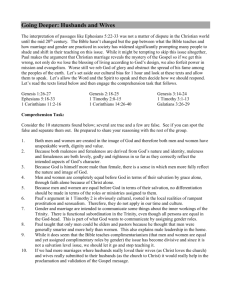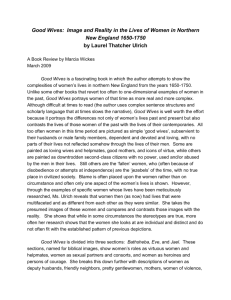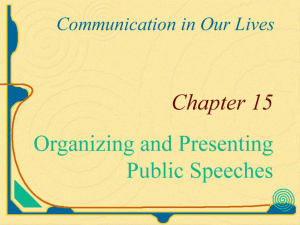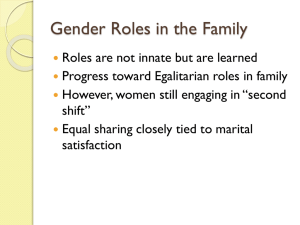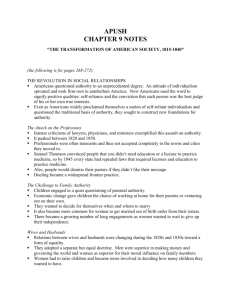1 Peter 2:13–3:7, Christlike Submission in a Hostile World 213Be
advertisement
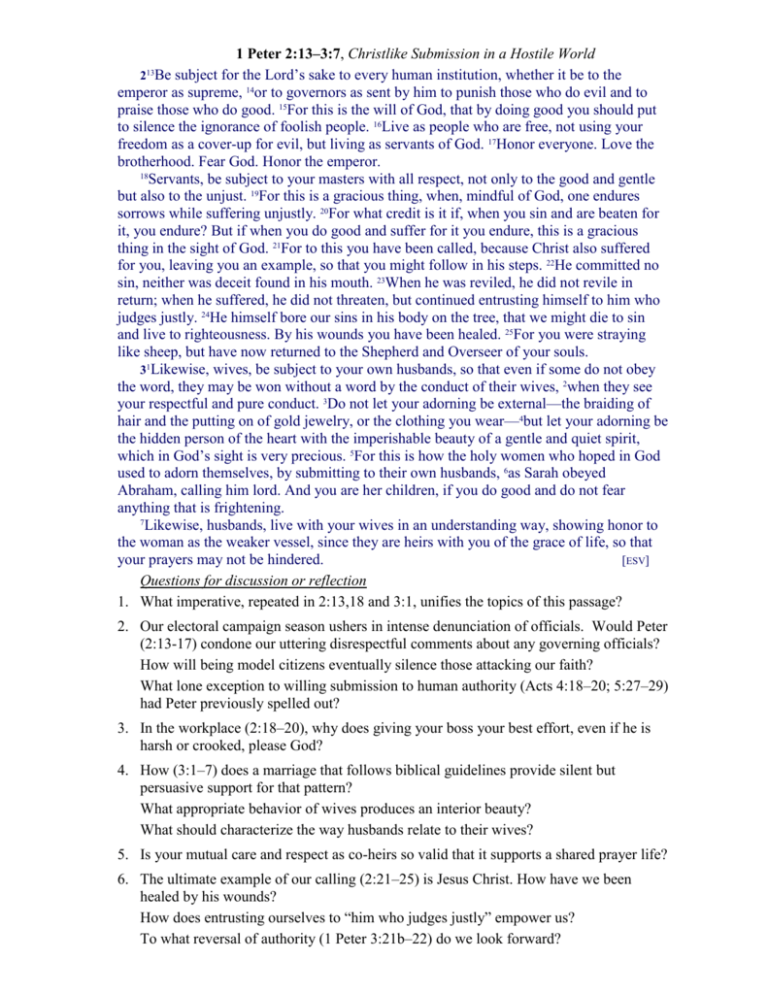
1 Peter 2:13–3:7, Christlike Submission in a Hostile World 213Be subject for the Lord’s sake to every human institution, whether it be to the emperor as supreme, 14or to governors as sent by him to punish those who do evil and to praise those who do good. 15For this is the will of God, that by doing good you should put to silence the ignorance of foolish people. 16Live as people who are free, not using your freedom as a cover-up for evil, but living as servants of God. 17Honor everyone. Love the brotherhood. Fear God. Honor the emperor. 18 Servants, be subject to your masters with all respect, not only to the good and gentle but also to the unjust. 19For this is a gracious thing, when, mindful of God, one endures sorrows while suffering unjustly. 20For what credit is it if, when you sin and are beaten for it, you endure? But if when you do good and suffer for it you endure, this is a gracious thing in the sight of God. 21For to this you have been called, because Christ also suffered for you, leaving you an example, so that you might follow in his steps. 22He committed no sin, neither was deceit found in his mouth. 23When he was reviled, he did not revile in return; when he suffered, he did not threaten, but continued entrusting himself to him who judges justly. 24He himself bore our sins in his body on the tree, that we might die to sin and live to righteousness. By his wounds you have been healed. 25For you were straying like sheep, but have now returned to the Shepherd and Overseer of your souls. 31Likewise, wives, be subject to your own husbands, so that even if some do not obey the word, they may be won without a word by the conduct of their wives, 2when they see your respectful and pure conduct. 3Do not let your adorning be external—the braiding of hair and the putting on of gold jewelry, or the clothing you wear—4but let your adorning be the hidden person of the heart with the imperishable beauty of a gentle and quiet spirit, which in God’s sight is very precious. 5For this is how the holy women who hoped in God used to adorn themselves, by submitting to their own husbands, 6as Sarah obeyed Abraham, calling him lord. And you are her children, if you do good and do not fear anything that is frightening. 7 Likewise, husbands, live with your wives in an understanding way, showing honor to the woman as the weaker vessel, since they are heirs with you of the grace of life, so that your prayers may not be hindered. [ESV] Questions for discussion or reflection 1. What imperative, repeated in 2:13,18 and 3:1, unifies the topics of this passage? 2. Our electoral campaign season ushers in intense denunciation of officials. Would Peter (2:13-17) condone our uttering disrespectful comments about any governing officials? How will being model citizens eventually silence those attacking our faith? What lone exception to willing submission to human authority (Acts 4:18–20; 5:27–29) had Peter previously spelled out? 3. In the workplace (2:18–20), why does giving your boss your best effort, even if he is harsh or crooked, please God? 4. How (3:1–7) does a marriage that follows biblical guidelines provide silent but persuasive support for that pattern? What appropriate behavior of wives produces an interior beauty? What should characterize the way husbands relate to their wives? 5. Is your mutual care and respect as co-heirs so valid that it supports a shared prayer life? 6. The ultimate example of our calling (2:21–25) is Jesus Christ. How have we been healed by his wounds? How does entrusting ourselves to “him who judges justly” empower us? To what reversal of authority (1 Peter 3:21b–22) do we look forward?
